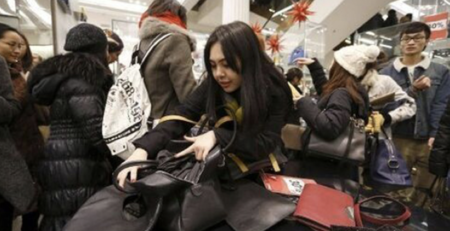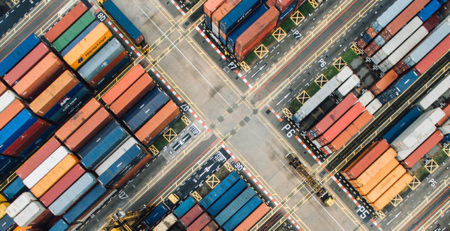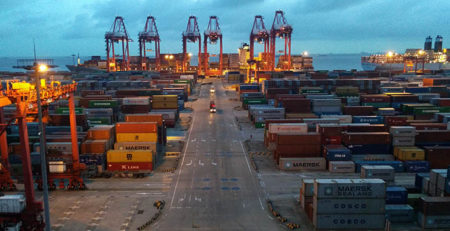What is quality control (QC) for importers sourcing in China
Importing products manufactured in China, it’s vital to incorporate a quality control process in the factory you work with. Even the best managed factory can not promise perfect batch always, so a robust quality control plan should be used to ensure a smooth deal.
What is Quality Control?
Quality control can focus on both product specifications and manufacturing process specifications for any type of good . The goal is to identify any problems, defects, and non-conformities in the product that doesn’t follow required specifications .Earlier we catch, easier of these pending problems.
Challenges for Importers without Quality Control
Payment is generally released to the manufacturer prior to the goods being shipped out in most of the cases, so you run the risk of receiving undeirable goods.No matter it is the factory’s mistakes or your ignornace cause this, you would suffer, because the expense for both shipping and customs duties would be enormous, not to mention the amount of time it would take to send back products and receive a new batch. But actually you can avoid this risk if you have quality control befor export.
Quality control not only ensures the quality of the product, it can also monitor their timely delivery. Without a quality control plan in place, production schedules can fall behind and you might miss your sale season, resulting in low product turnover.You should check yours goods at pivotal points in the manufacturing process and communicate with the supplier to get any potential problems fixed before it’s too late. To do so, you can manage it all by yourself together with the factory or work with third parties.
Who Performs Quality Control in China?
There are a few different options for quality control when importing. The first is the supplier’s in-house review of the manufacturing process. However, it’s pretty obvious that solely relying on the manufacturer presents a conflict of interest. At the end of the day, they are likely to be more concerned with their own financial interests than the quality of your products. To get a better idea of how the supplier operates, consider performing a factory audit prior to the confirmation of your order. This will give you a clear idea of exactly how they control the quality within the factory. You might also check the factory’s licenses and certifications, along with their production capacity, human resources policies, and more.
Another way to perform quality control is through your trading or sourcing partner in China. You could consider requesting that they add a product inspection to their other duties; however, this also carries a high conflict of interest. Intermediates negotiating with suppliers need to keep good business relationships with them, and some may even receive hidden commissions from the factory that you don’t know about. In this situation, it is very difficult for them to provide a neutral opinion because the financial pressure and incentives are too high.
You could also decide to have your own quality team. This strategy requires intensive training on your product, plus local human resources management available anytime you need them and based near your suppliers’ locations. Travel time and transportation costs could quickly add up if your suppliers are located throughout the country. There are additional risks as well. Because quality teams have a limited number of human resources, the same quality inspector will regularly be in charge of verifying goods at the same suppliers’ site. There is a high chance that QC and suppliers develop a friendship that will end up with risk of corruption or at the very least influence his point of view on the goods’ quality.
As an alternative, there is a wide range of reputable third party inspection companies who advocate on your behalf in China. The company’s sole purpose is to protect you and your financial interests by verifying the goods based on your requirements. They have a neutral relationship with the supplier or trader; in fact, their business relationship is on one side only: the importer. They can provide several QCs to visit a unique supplier to keep the opinion the most neutral. They are able to provide services all over China and Asia for the big players. Plus, many importers are surprised at how affordable professional third party inspections are, especially compared to the potential for loss if a low-quality shipment makes it to your door. When searching for the ideal quality control company, make sure it holds both ISO 9001 and AQSIQ licenses from the Chinese government. Also be aware of non-reputable or poorly managed companies whose employees might be open to bribery from the factory to inaccurately represent information during the quality control verification process.
What Does Quality Control Include?
When you work with a third party inspection company or your own quality team, the process is very detailed and specific to your product.You develop a detailed inspection protocol based on a checklist and your own product specifications and quality requirements. The inspection protocol sets up all the different verifications the QC may have to perform while controlling the goods on-site: it includes cosmetic verification, functional verifications as well as conformity to your requirements verification. It’s best to be as specific as possible to ensure every detail is controlled and evaluated as you want it. Provide clear details, otherwise the inspector and the manufacturer will use their common sense which may be different from yours. Also realize that your checklists should be constantly evolving as your own specifications change. You can even provide your inspector with a reference sample to be used in conjunction with the specification sheet to get the best results.
Looking for possibilities of buying products in China?
EC4U Ltd is sourcing and producing non-food consumer goods for Brand owners. Our roots are in Europe, our operations in China mainland and Hong Kong. We know what you care and want because of our root , then we also know how to solve the problems in China because we have been here for a decade.
EC4U is here in Asia for finding the best sources for brands. Over the last decade we’ve built a vast data base of qualified vendors. To EC4U, qualify does not only mean quality and price but also mean the sincerity of solving problems together. We have offices in Hong Kong and Jiangmen City. They are in the middle of the most developed Industry area in China: The Pearl River Delta. The comprehensive infrastructure of the Pearl River Delta brings convenience in quality control and communication.
Error: Contact form not found.






